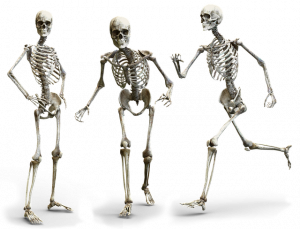Osteoporosis is a condition that affects the bones, causing them to become weak and brittle. This can lead to an increased risk of fractures, especially in the hip, spine, and wrist. Osteoporosis is often referred to as a “silent disease” because it can develop over many years without any symptoms until a fracture occurs.
There are several factors that can contribute to the development of osteoporosis, including age, gender, genetics, and lifestyle choices. Women are more likely than men to develop osteoporosis, especially after menopause when estrogen levels decrease. Other risk factors include a family history of osteoporosis, low body weight or BMI, smoking, excessive alcohol consumption, and a sedentary lifestyle.
The Role of Nutrition in Bone Health
 Nutrition plays a crucial role in maintaining bone health and preventing osteoporosis. Two key nutrients for bone health are calcium and vitamin D. Calcium is essential for building strong bones and teeth, while vitamin D helps the body absorb calcium.
Nutrition plays a crucial role in maintaining bone health and preventing osteoporosis. Two key nutrients for bone health are calcium and vitamin D. Calcium is essential for building strong bones and teeth, while vitamin D helps the body absorb calcium.
The recommended daily intake of calcium for adults is 1000-1200 mg per day, depending on age and gender. Good sources of calcium include dairy products such as milk, cheese, and yogurt, as well as leafy greens like kale and spinach. Vitamin D can be obtained through exposure to sunlight or through foods such as fatty fish (salmon, tuna), egg yolks, and fortified foods like milk and cereal.
The Benefits of Dairy Products
Dairy products are an excellent source of both calcium and vitamin D, making them an important part of a bone-healthy diet. One cup of milk contains around 300 mg of calcium and 100 IU of vitamin D. Cheese and yogurt also contain significant amounts of these nutrients.
Low-fat dairy products are recommended for those who are concerned about their saturated fat intake. For those who are lactose intolerant, there are still options for obtaining calcium and vitamin D through fortified plant-based milks and yogurts.
Other Foods that Support Bone Health
In addition to dairy products, there are several other foods that can support bone health. Leafy greens like kale, spinach, and collard greens are high in calcium and other nutrients like vitamin K, which is important for bone health. Nuts and seeds like almonds, sesame seeds, and chia seeds are also good sources of calcium.
Fish and seafood are rich in vitamin D as well as omega-3 fatty acids, which have been shown to have anti-inflammatory effects that can benefit bone health. Canned salmon and sardines with bones are particularly good sources of calcium.
Exercise for Bone Strength
Exercise is another important factor in maintaining bone health. Weight-bearing exercises like walking, jogging, and dancing can help build bone density and strength. Resistance training with weights or resistance bands can also be beneficial for bone health.
The recommended frequency and duration of exercise for bone health varies depending on age and fitness level. Generally, adults should aim for at least 30 minutes of moderate-intensity exercise most days of the week.
Supplements for Bone Health
Supplements can be a helpful addition to a bone-healthy diet and exercise routine. Calcium supplements can be taken to ensure adequate intake if dietary sources are insufficient. Vitamin D supplements may also be recommended for those who do not get enough through sunlight or food sources.
It is important to follow recommended dosages when taking supplements, as excessive intake can lead to negative side effects such as kidney stones or hypercalcemia (high levels of calcium in the blood).
Prevention and Treatment of Osteoporosis
Prevention of osteoporosis involves making lifestyle changes such as maintaining a healthy diet, engaging in regular exercise, avoiding smoking and excessive alcohol consumption, and getting regular bone density testing.
For those who have already been diagnosed with osteoporosis, medications may be prescribed to slow bone loss and reduce the risk of fractures. These medications include bisphosphonates, hormone therapy, and denosumab.
Regular bone density testing is important for monitoring bone health and detecting osteoporosis early. This can be done through a DEXA scan, which measures bone density in the hip and spine.
Maintaining bone health is crucial for overall health and quality of life. Osteoporosis can be prevented through lifestyle changes such as a healthy diet, regular exercise, and avoiding smoking and excessive alcohol consumption. Calcium and vitamin D are essential nutrients for bone health, and can be obtained through a variety of foods including dairy products, leafy greens, nuts and seeds, and fish. Supplements may also be helpful for those who do not get enough through diet or sunlight. Regular bone density testing is important for monitoring bone health and detecting osteoporosis early.








